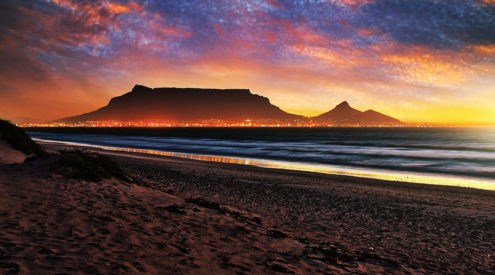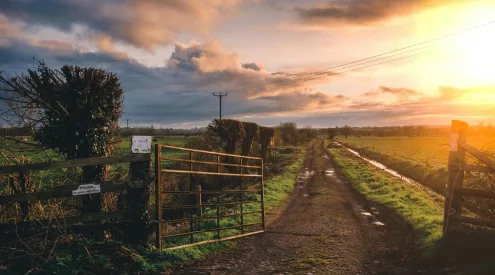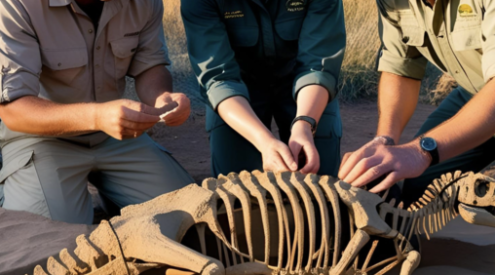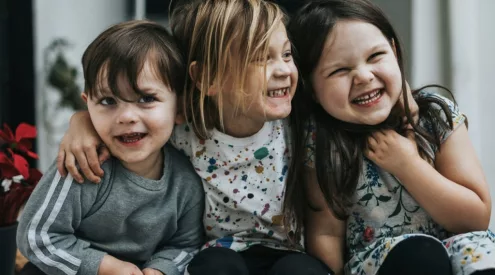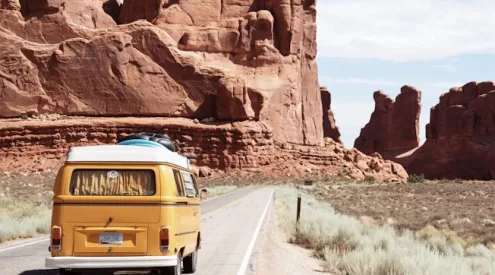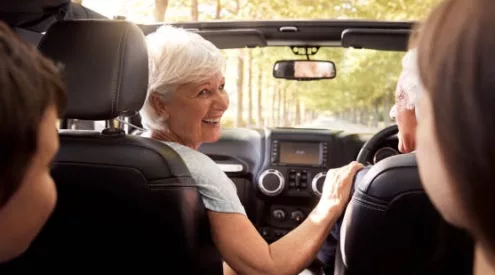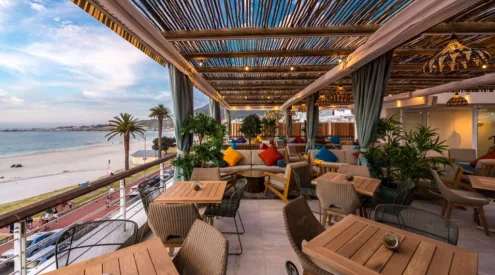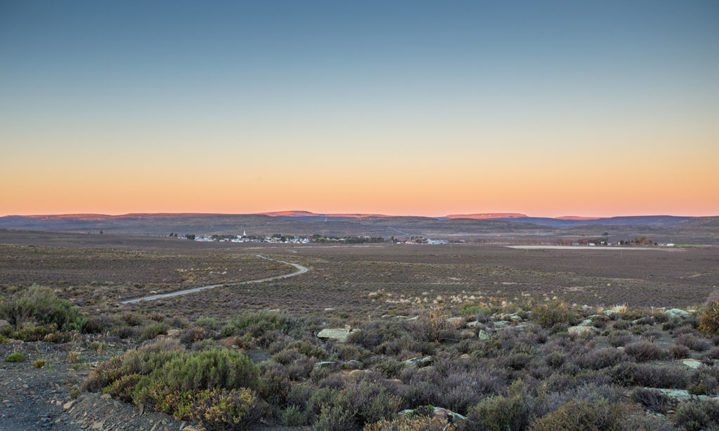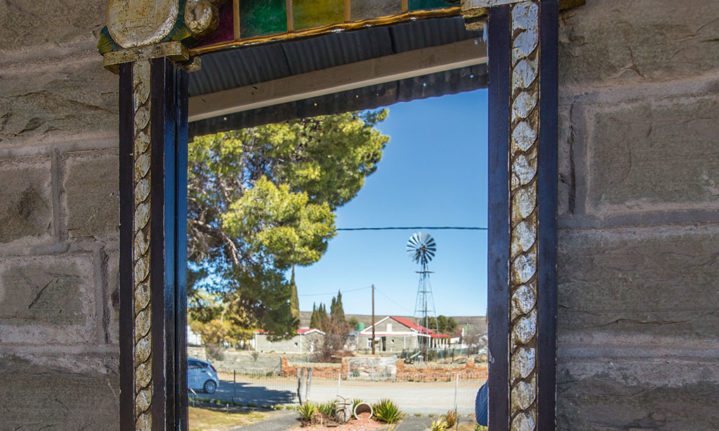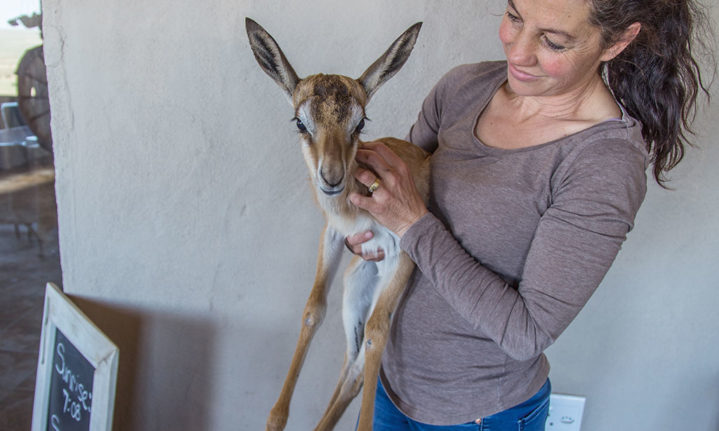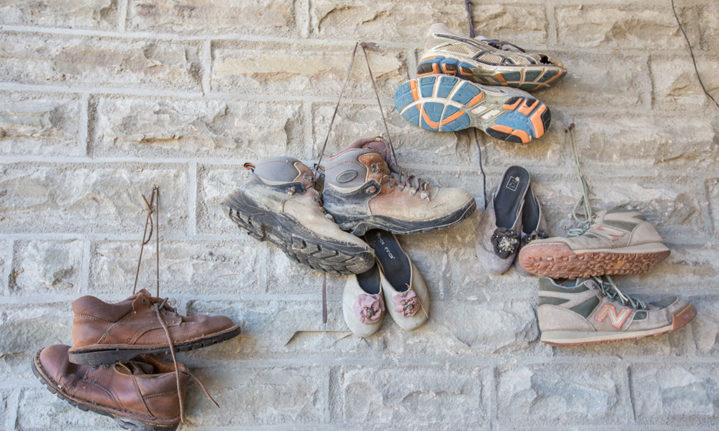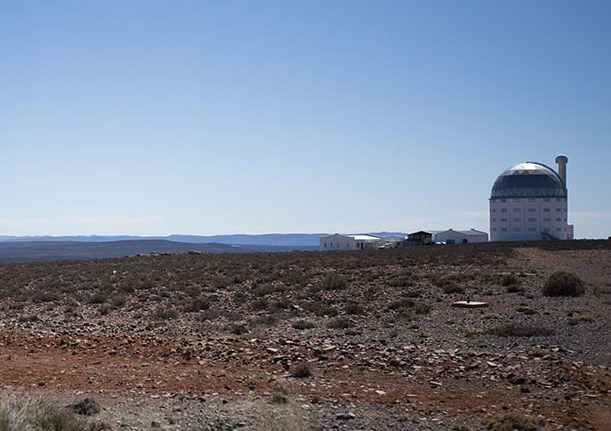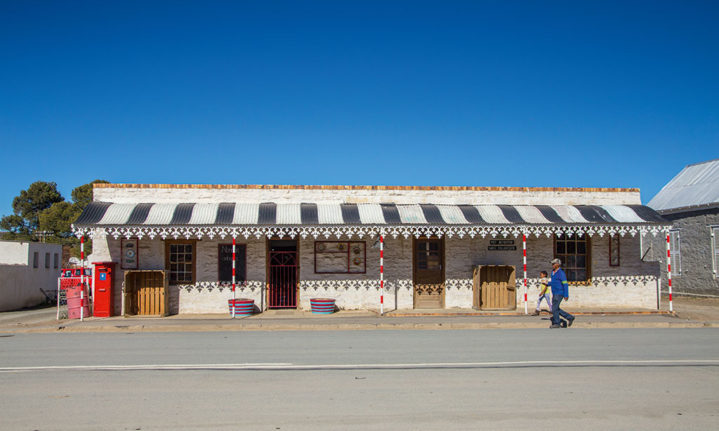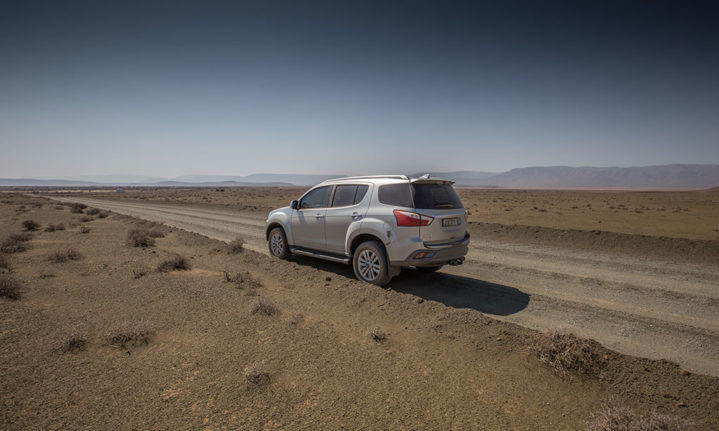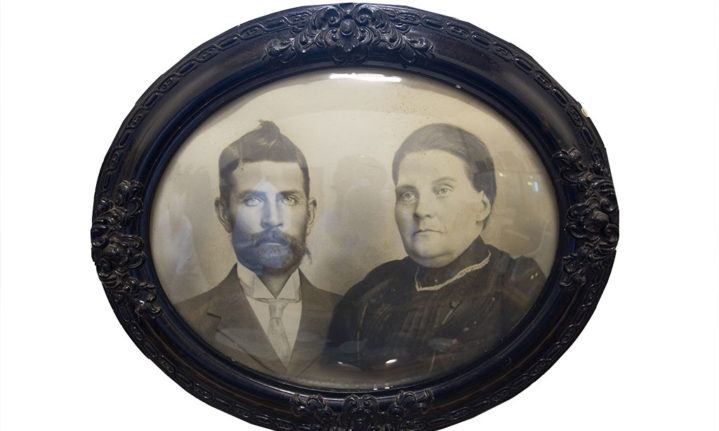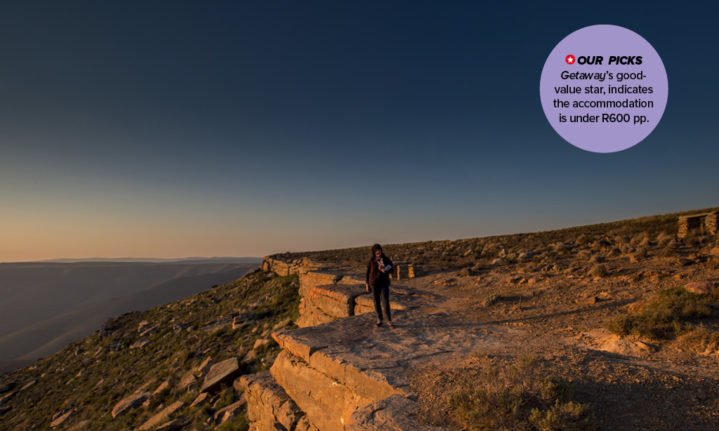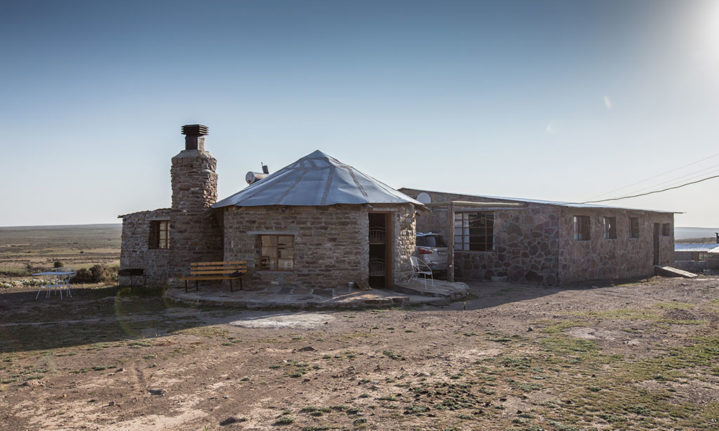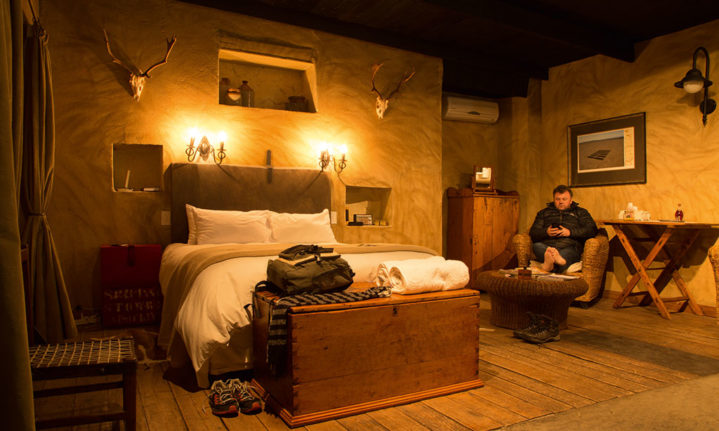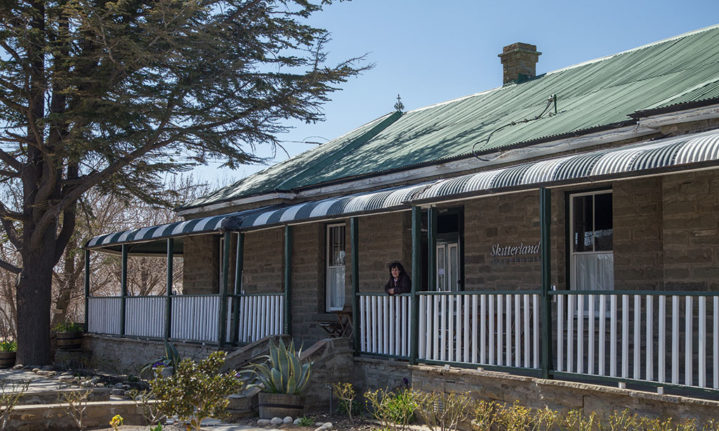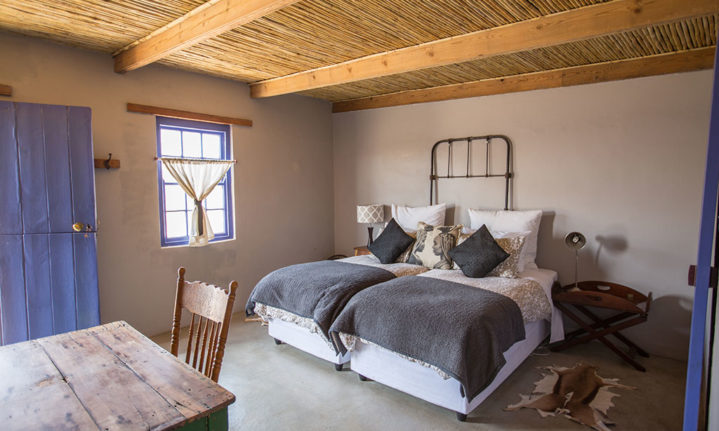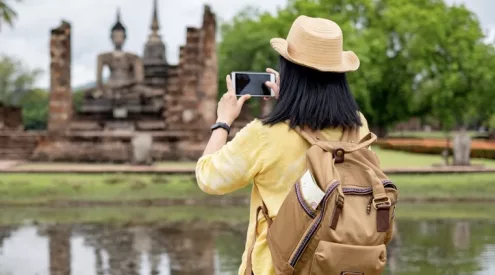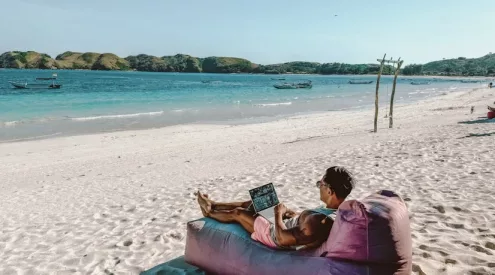One of the main attractions of Sutherland, South Africa’s stargazing capital, is its remote location, but its history and people also have an inimitable story to tell.
Words & Photographs: Michelle Hardie
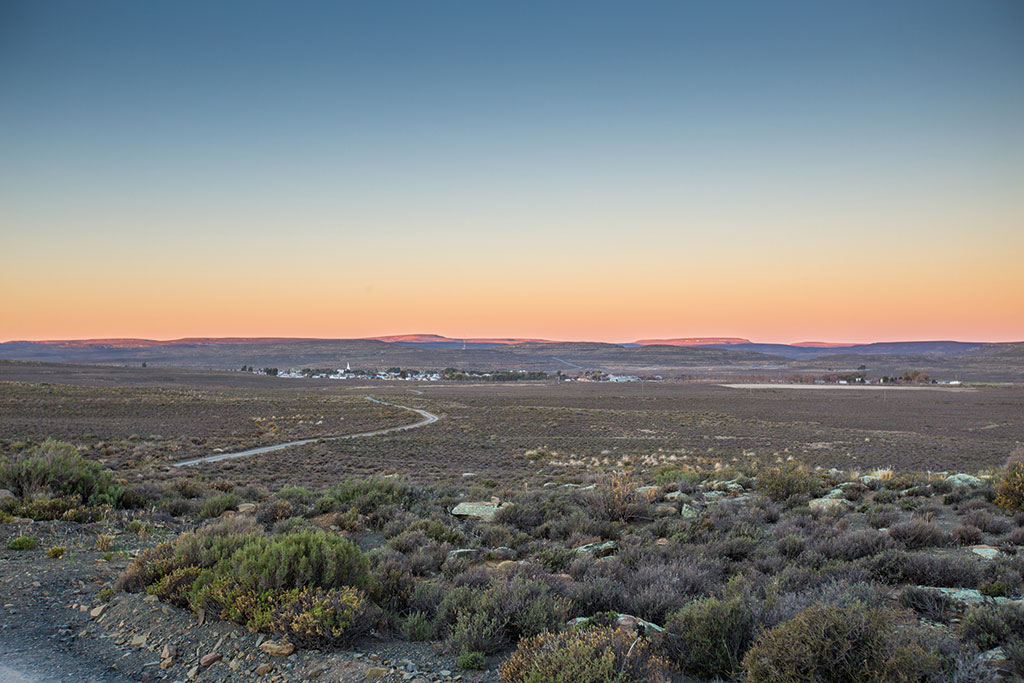
Early-evening light over Sutherland is just the prelude to its magical night skies.
Sutherland is no ordinary Karoo town. Behind the rickety windmills and bone-dry landscape, stories of accomplishment prevail. It’s here that local and international astronomers collaborate at the South African Astronomical Observatory’s field station to seek answers to fundamental questions such as how did the universe evolve and what is the future of our species? Since the construction of the Southern African Large Telescope (SALT) in 2005, one of the largest in the world, the observatory has been recognised as a first-class research facility at the forefront of space science.
That Sutherland has the cleanest air and darkest night skies in the country adds to its fame, but few know that it’s also the birthplace of people who have contributed to the country’s cultural and scientific heritage. Take for instance NP van Wyk Louw, lauded as the Shakespeare of Afrikaans. He first opened his eyes under a Sutherland sky in 1906 and lived there until he was a teenager. Chief engineer for the Kariba Dam project, Dr Henry Olivier, was also born there. And not forgetting André van der Merwe. In 2014, he performed the world’s first successful penis transplant to repair a botched circumcision. With such a concentration of brains and talent in a tiny place, I reckon there must be something in the water.
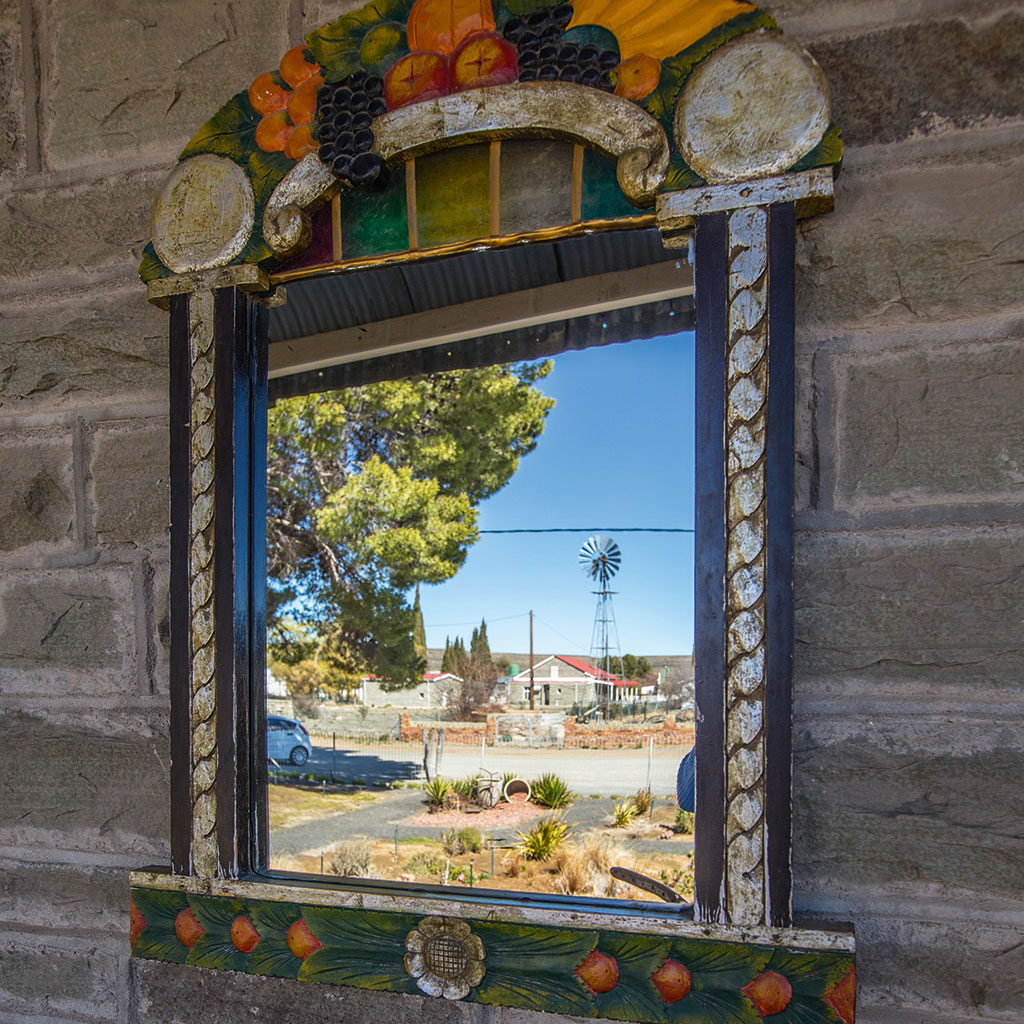
A typical scene in town, reflected through a mirror at Blue Moon Guest House.
Sutherland has another claim to fame – it’s the coldest place in South Africa. With this in mind, I packed a range of woolly hats, scarves, jerseys, a down jacket and knee-high boots for our winter visit. My husband, John, carried our bulging suitcase to our swanky new Isuzu mu-X, on loan for our trip, and we set off from Cape Town on the N1 early one morning.
About four hours later, we reached the Verlatenkloof Pass traversing the Roggeveld Mountains. It’s a spectacular 12-kilometre drive on smooth asphalt, and then suddenly the mountains disappear and the view opens to reveal a flat landscape as far as the eye can see. It was clear weather so we could just make out a smattering of distant silver roofs glinting in the sunlight. ‘Ah, that must be Sutherland,’ I murmured.
It was quiet and hot as we drove down the main drag of Piet Retief Street. Skitterland Guest House, our accommodation for two nights, looked welcoming with its long veranda facing the road. Further on, the national flag hung limply at the police station and the spire of the Dutch Reformed Church rose prominently above pine trees. My husband spotted Paulsen’s Slaghuis – we’d go there for fresh Karoo lamb chops to braai. A Victorian building with curved tin roof and broekie lace housed Nonna’s Antiques, and opposite the Sutherland Hotel stood the planetarium with its two, domeshaped roofs.
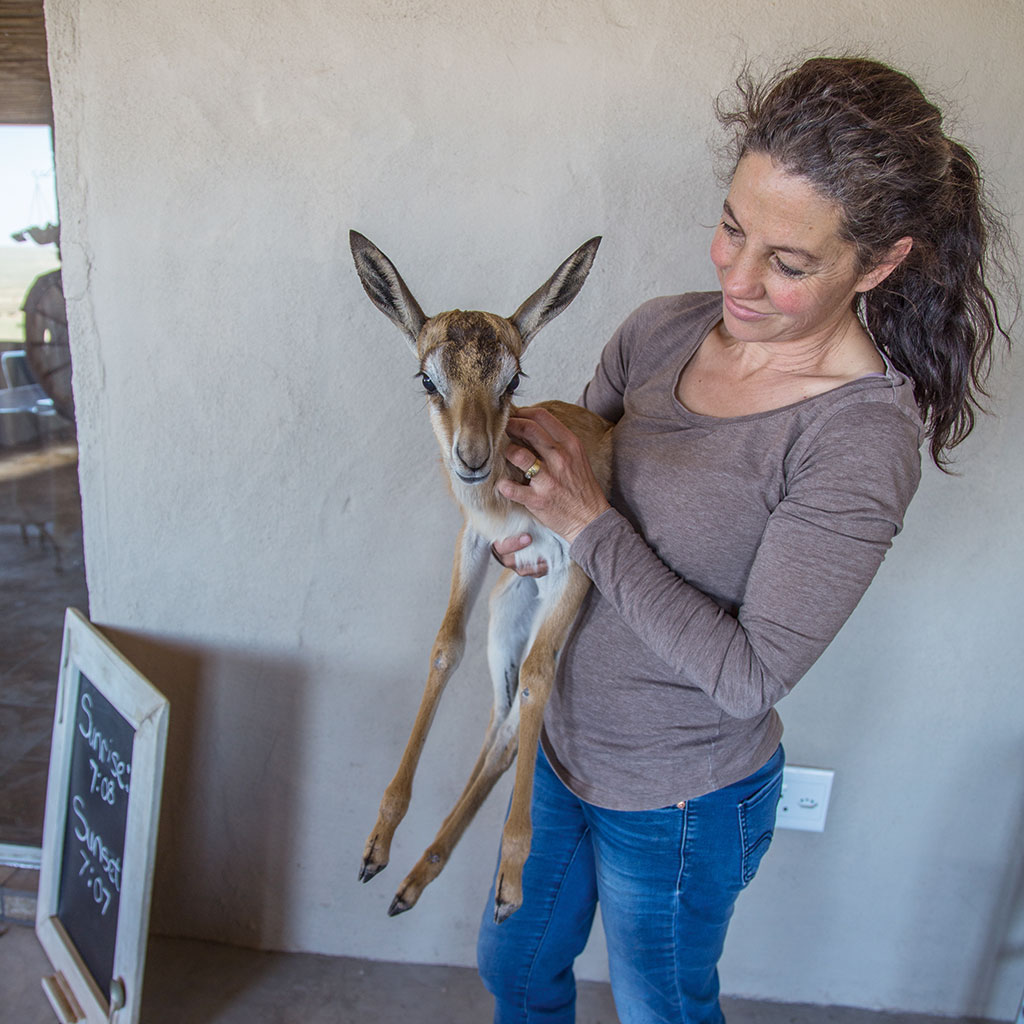
At the time of our visit to Blesfontein Guest Farm, owner Marina van der Merwe was bottle feeding this springbok that had lost its mom.
Alta Steenkamp, who runs the planetarium and promotes tourism, was expecting us. ‘Welcome to our wonderful little town,’ she beamed. Alta’s family have lived here since the 1930s and her enthusiasm for ‘everything Sutherland’ is contagious. After a coffee in the planetarium’s cafe, she ushered us through a door to see the ‘show’. The theatre was cool and dark, and we spent a glorious 40 minutes reclining on comfortable loungers immersed in space. The show is projected onto the dome ceiling and its 3D special effects made us feel like we were travelling in space. Later that night in an open-air boma behind the planetarium, we saw Jupiter, Saturn and the moon up close through a powerful 14-inch telescope with amateur astronomer Lucas Ferreira.
Stargazing wasn’t the only thing that absorbed our attention during our stay. In an unassuming house on Jubilee Street, curator Rykie Louw preserves personal items such as letters, photographs and artefacts from the town’s prominent inhabitants including author Anna Jordan and Daniël Esterhuyse, considered the first Afrikaans poet in South Africa. NP van Wyk Louw and his brother WEG (known as Gladstone) were born in this very house, which was built in 1861, and converted into a museum in the 1980s.
We sat transfixed listening to Rykie’s stories and admiring her devotion to preserving Afrikaans history. She beamed at my husband when he disclosed he had a bit of ‘Louw DNA’ in him, pointing out the striking resemblance of Gladstone’s photograph to his family members.
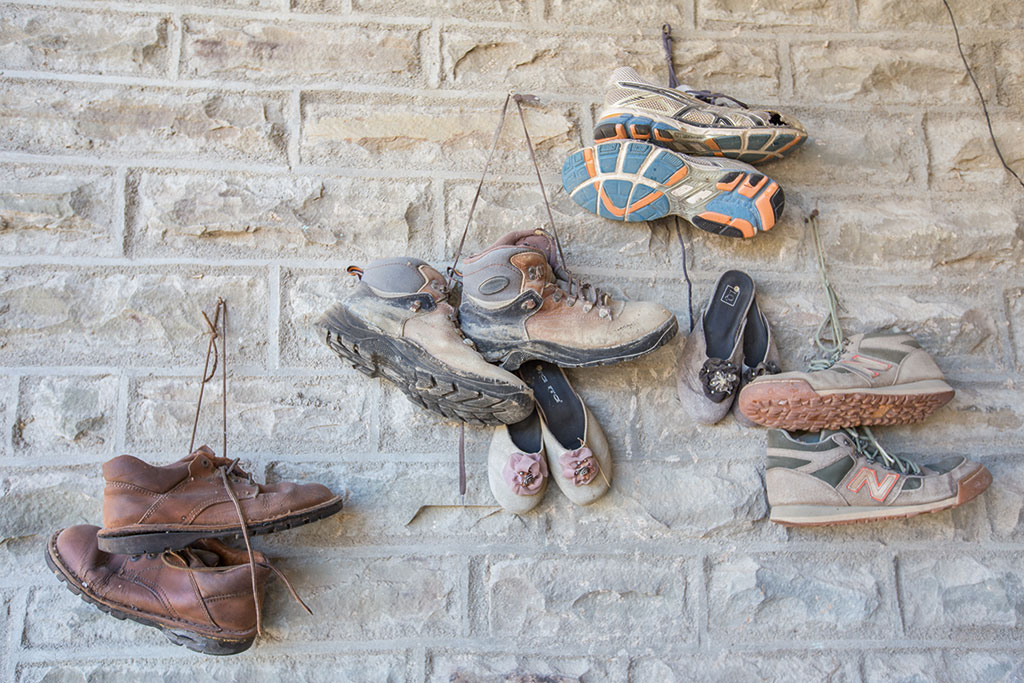
Recycled shoes make a unique artwork on the veranda at Blue Moon Guest House.
Tales of betrayal, loss and thuggery are also part of Sutherland’s history. As we stood in the nave of the Dutch Reformed Church looking up at the gilded ironwork and Oregon-pine roof, I was amazed that it had survived occupation by British soldiers in 1901 during the Anglo-Boer War. The men behaved terribly, burning its floors and pews for firewood and writing graffiti on the doors (one is on display in the gallery). Its church minister at the time, a man named Conradie, was declared an ‘undesirable’ for writing to The London Times complaining about the soldiers’ behaviour. With a gun to his head, he was forced to hand over the keys and sent to a camp in Matjiesfontein.
In a small museum off to the side, Jenny Kruger, who takes visitors on church tours, showed us a photograph of Daniël Esterhuyse and his wife, Christina. She told us that his poetry (a mixture of Dutch and Afrikaans) is full of sorrow for his son who died from eating uintjies (veld bulbs). They were a Khoisan staple but Daniël inadvertently picked poisonous ones which were fed to his young boy.
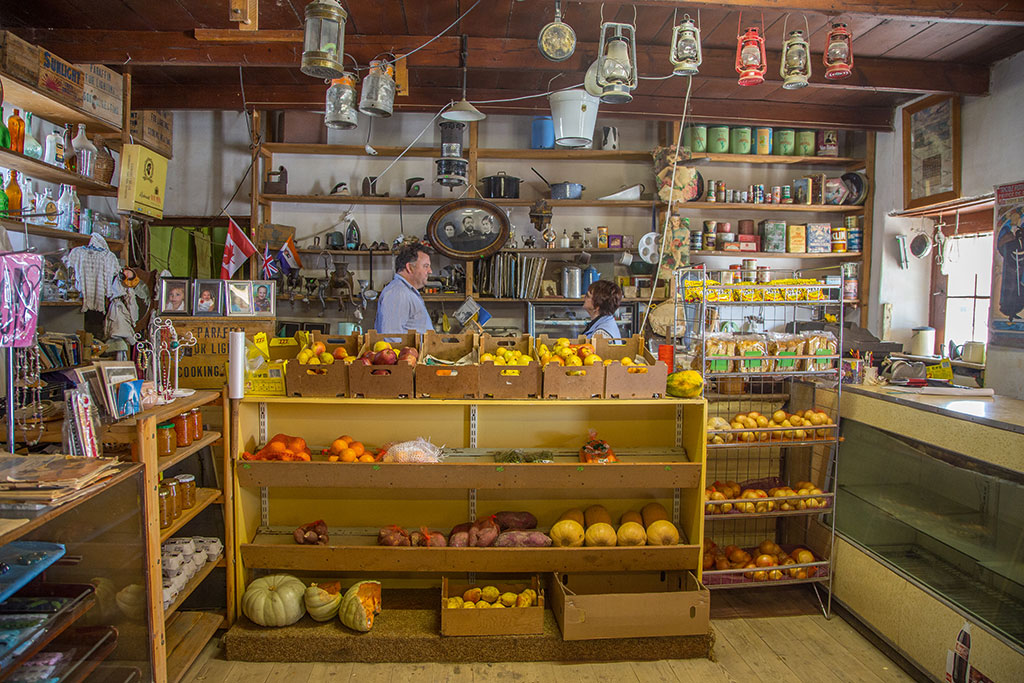
Entering Magda se Winkel’s wonderful grocery/junk shop is like experiencing a time warp.
Our experience of Sutherland’s dark, celestial skies and Karoo hospitality would not have been complete without a stay at Blesfontein, about 30 kilometres from town. Nicol and Marina van der Merwe’s farm is set in exquisite landscape near the Roggeveld escarpment. Staying there was a reminder that the town came into existence to serve the sheep-farming community. Today, there are about 150 farming families that have lived in the district for generations. At the end of summer, Nicol walks three to four days with his livestock to the Tankwa Karoo, below the escarpment, because it’s warmer for the animals. This yearly trek, conducted by many farmers, was initiated more than 300 years ago.
It was also at Blesfontein that I could, at last, wear my woollies and get some Sutherland cold in my bones. It was also there, under a pitch-black sky sprinkled with the Milky Way, that Nicol, a legendary raconteur, told me about the penis transplant.
After nine hours of surgery, André van der Merwe’s operation was so successful that the guy has even been able to sew his seed, so rest assured, the fertility of mankind is in the bag. Kariba Dam wall is still standing, thank heavens, and Afrikaans is being preserved for future generations. None of them a small feat, and I’m sure it still has to do with the water.
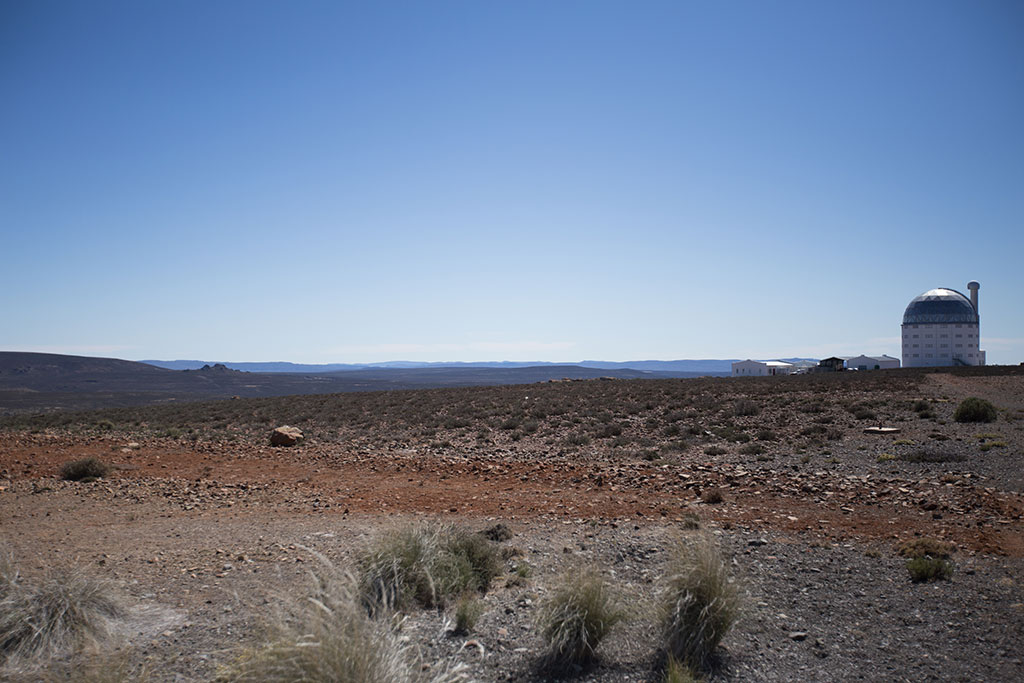
Sutherland’s martianlike landscape with the super-modern Southern African Large Telescope (SALT) shimmering in the background. Partners from South Africa, Poland, the USA, Germany, New Zealand, the UK and India have made the construction and ongoing operation of SALT possible.
Sutherland has another claim to fame – it’s the coldest place in South Africa. With this in mind, I packed a range of woolly hats, scarves, jerseys, a down jacket and knee-high boots for our winter visit.
My husband, John, carried our bulging suitcase to our swanky new Isuzu mu-X, on loan for our trip, and we set off from Cape Town on the N1 early one morning.
About four hours later, we reached the Verlatenkloof Pass traversing the Roggeveld Mountains. It’s a spectacular 12-kilometre drive on smooth asphalt, and then suddenly the mountains disappear and the view opens to reveal a flat landscape as far as the eye can see. It was clear weather so we could just make out a smattering of distant silver roofs glinting in the sunlight. ‘Ah, that must be Sutherland,’ I murmured.
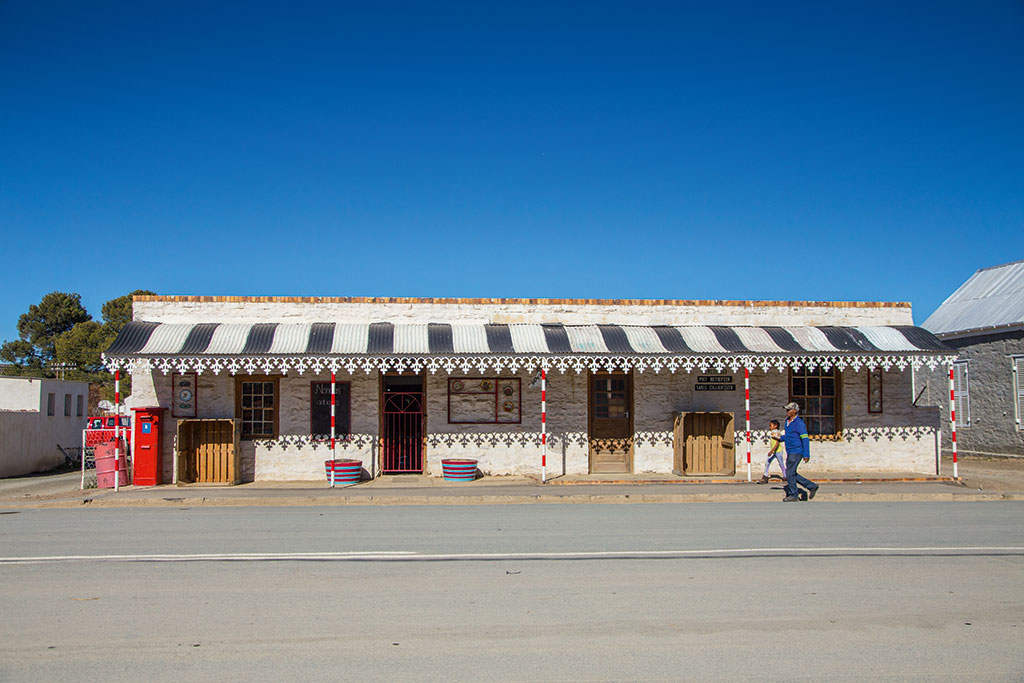
An example of Sutherland’s Victorian architecture on the main street, this building houses Nonna’s Antiques.
It was quiet and hot as we drove down the main drag of Piet Retief Street. Skitterland Guest House, our accommodation for two nights, looked welcoming with its long veranda facing the road. Further on, the national flag hung limply at the police station and the spire of the Dutch Reformed Church rose prominently above pine trees. My husband spotted Paulsen’s Slaghuis – we’d go there for fresh Karoo lamb chops to braai. A Victorian building with curved tin roof and broekie lace housed Nonna’s Antiques, and opposite the Sutherland Hotel stood the planetarium with its two, dome-shaped roofs.
Alta Steenkamp, who runs the planetarium and promotes tour- ism, was expecting us. ‘Welcome to our wonderful little town,’ she beamed. Alta’s family have lived here since the 1930s and her enthusiasm for ‘everything Sutherland’ is contagious. After a coffee in the planetarium’s cafe, she ushered us through a door to see the ‘show’. The theatre was cool and dark, and we spent a glorious 40 minutes reclining on comfortable loungers immersed in space. The show is projected onto the dome ceiling and its 3D special effects made us feel like we were travelling in space. Later that night in an open-air boma behind the planetarium, we saw Jupiter, Saturn and the moon up close through a powerful 14-inch telescope with amateur astronomer Lucas Ferreira.
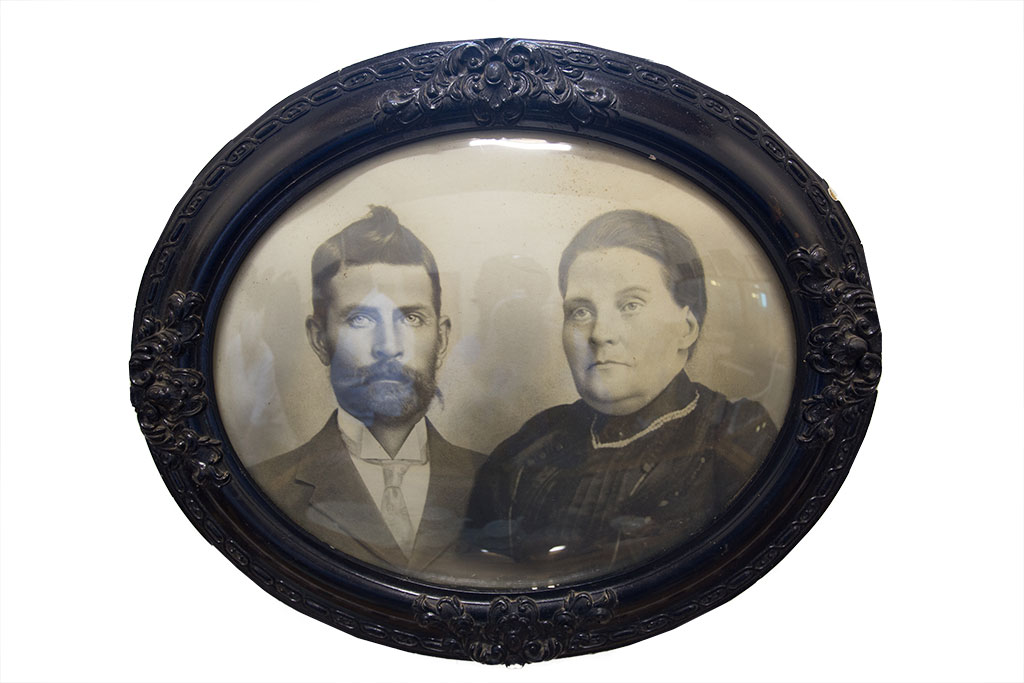
Poet Daniël Esterhuyse with his wife Christina.
Stargazing wasn’t the only thing that absorbed our attention during our stay. In an unassuming house on Jubilee Street, curator Rykie Louw preserves personal items such as letters, photographs and artefacts from the town’s prominent inhabitants including author Anna Jordan and Daniël Esterhuyse, considered the first Afrikaans poet in South Africa. NP van Wyk Louw and his brother WEG (known as Gladstone) were born in this very house, which was built in 1861, and converted into a museum in the 1980s.
We sat transfixed listening to Rykie’s stories and admiring her devotion to preserving Afrikaans history. She beamed at my husband when he disclosed he had a bit of ‘Louw DNA’ in him, pointing out the striking resemblance of Gladstone’s photograph to his family members.
Tales of betrayal, loss and thuggery are also part of Sutherland’s history. As we stood in the nave of the Dutch Reformed Church looking up at the gilded ironwork and Oregon-pine roof, I was amazed that it had survived occupation by British soldiers in 1901 during the Anglo-Boer War. The men behaved terribly, burning its floors and pews for firewood and writing graffiti on the doors (one is on display in the gallery). Its church minister at the time, a man named Conradie, was declared an ‘undesirable’ for writing to The London Times complaining about the soldiers’ behaviour. With a gun to his head, he was forced to hand over the keys and sent to a camp in Matjiesfontein.
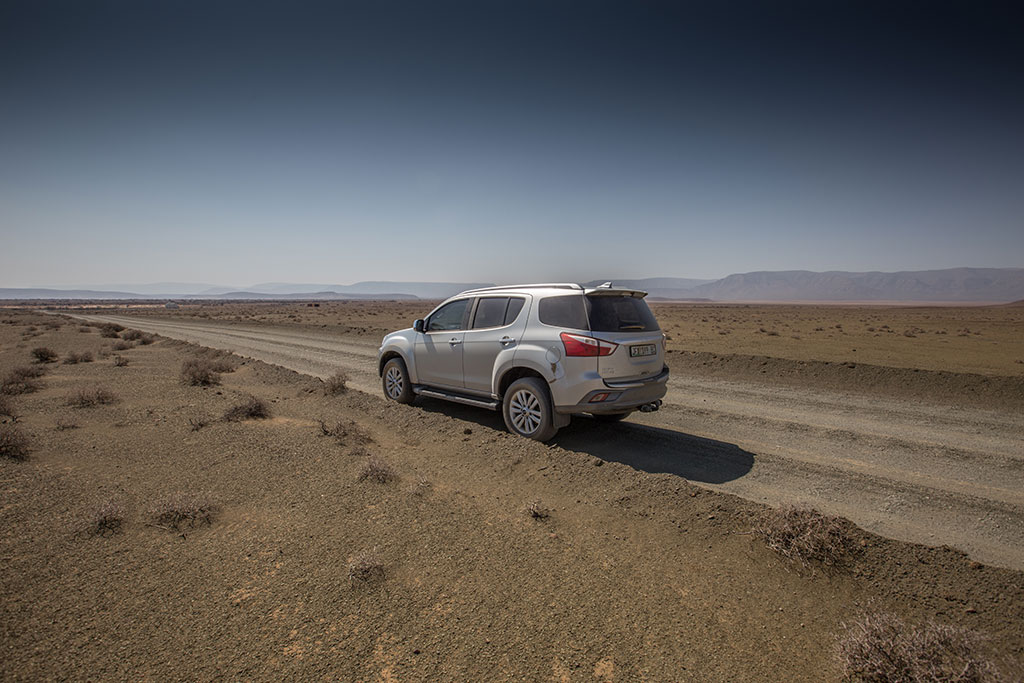
Isuzu mu-X 3,0 4X4 AT6
It was a pleasure to drive this luxurious SUV that’s equally comfortable on- and off-road. On our day trip to Tankwa National Park and driving the Ouberg and Gannaga passes, we clocked up about 350 kilometres on variable road surfaces. The mu-X’s four-wheel drive was effective on the switchbacks, gravelly ascents and steep descents. Its turbodiesel engine performed with ease, and was frugal to boot.
Fast facts
Price R685 000
Engine 3.0L
4-cylinder turbodiesel
Gearbox 6-speed automatic
Fuel economy 7,3 L/100km
Power/Torque 130kW/380Nm
In a small museum off to the side, Jenny Kruger, who takes visitors on church tours, showed us a photograph of Daniël Esterhuyse and his wife, Christina. She told us that his poetry (a mixture of Dutch and Afrikaans) is full of sorrow for his son who died from eating uintjies (veld bulbs). They were a Khoisan staple but Daniël inadvertently picked poisonous ones which were fed to his young boy.
Our experience of Sutherland’s dark, celestial skies and Karoo hospitality would not have been complete without a stay at Blesfontein, about 30 kilometres from town. Nicol and Marina van der Merwe’s farm is set in exquisite landscape near the Roggeveld escarpment. Staying there was a reminder that the town came into existence to serve the sheep-farming community. Today, there are about 150 farming families that have lived in the district for generations. At the end of summer, Nicol walks three to four days with his livestock to the Tankwa Karoo, below the escarpment, because it’s warmer for the animals. This yearly trek, conducted by many farmers, was initiated more than 300 years ago.
It was also at Blesfontein that I could, at last, wear my woollies and get some Sutherland cold in my bones. It was also there, under a pitch-black sky sprinkled with the Milky Way, that Nicol, a legendary raconteur, told me about the penis transplant.
After nine hours of surgery, André van der Merwe’s operation was so successful that the guy has even been able to sew his seed, so rest assured, the fertility of mankind is in the bag. Kariba Dam wall is still standing, thank heavens, and Afrikaans is being preserved for future generations. None of them a small feat, and I’m sure it still has to do with the water.
Plan your trip
Getting there
Take the N1 from Cape Town, turning left onto the R354 to Sutherland. It’s about 350km and takes around four hours to drive.
When to go
If you want to get the best out of stargazing and night photography, don’t visit when it’s full moon, or when cloud conditions are predicted. Temperatures can drop below zero in winter, and there’s a chance of snow.
Need to know
It’s worth stopping for biltong and the most delicious craft beer at Verlatenkloof Guest Farm on the Verlatenkloof Pass, about 30 kilometres south-west of Sutherland.
Do This
Don’t miss the Full-Dome Experience at Sutherland Planetarium, where you’ll feel as if you’re floating in space (R80 per adult, kids R50 pp). Also offered is night-time stargazing (R130 per adult, R80 for kids, under 6s are free). 076-909-8635, discoversutherland.co.za
No visit to Sutherland should be without a daytime, fully guided tour (R100 adults, kids R50) of the South African Astronomical Observatory (SAAO) field station. Our guide, Delisha Kamfer, gave an informative talk and then led us in convoy up to SALT, aka Africa’s Giant Eye, where we watched the telescope’s mirrors being cleaned. There are 91 of them, each costing $1 million. There are no night-time tours of SALT because of light pollution from vehicles. 023-571-2436, salt.ac.za
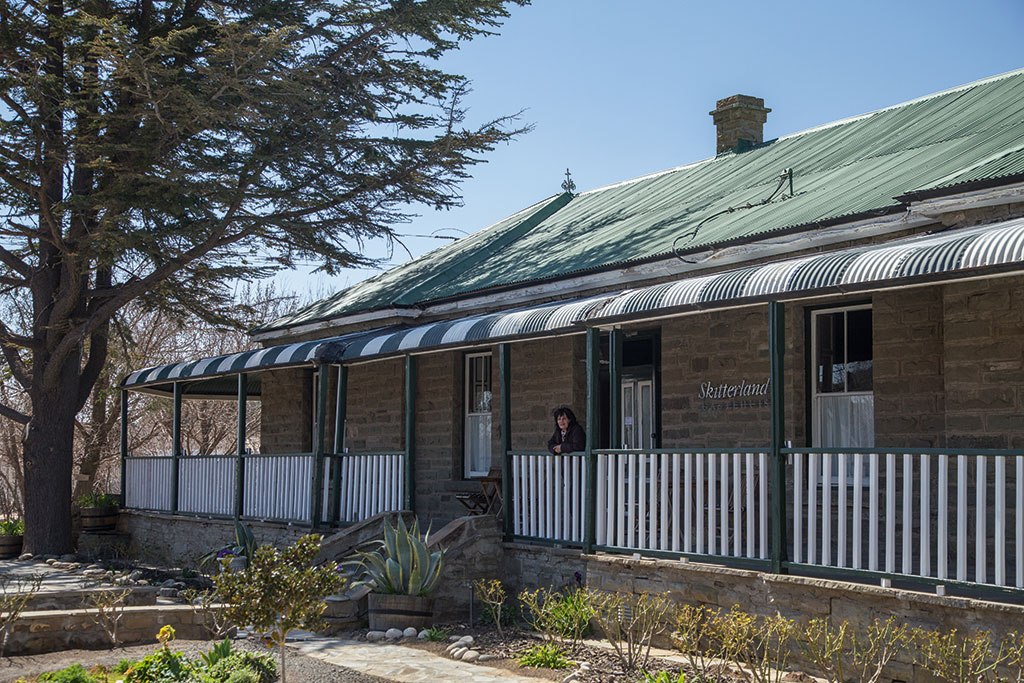
Alta Steenkamp of Discover Sutherland, which also operates from the planetarium, has mapped a walking route which includes the hospital, built in 1755, and the Old Ark, the first church built in 1858. Self-guided, or if you’re in a group, Alta will accompany you. Maps can be bought at the planetarium for R40.
Archaeologists have been busy in the area. Those interested in fossils can join Jaco Groenewald for a walk in the veld to an archaeological site. From R150 for two people, four or more R60 pp (includes a talk and an exhibition of fossils).
The Louw House Museum showcases Afrikaans literature and a collection of farming implements, clothes and furniture depicting a bygone era. The house still has its original wooden floors from 1861. Curator Rykie Louw lives diagonally opposite the museum and opens up for you (R20 pp). Call her to make an appointment on 023-571-1131.
Don’t miss out on a tour of the Dutch Reformed Church – a beautiful example of neo-Gothic architecture. Jenny Kruger (081-320-2060) offers guided tours. R30 adults, R15 pp for kids. The fees are donated to the local old-age home.
Eat & Shop Here
Ou Meule Restaurant, a local hang-out, is located in Sutherland’s original mill, which has been restored. My meal of Karoo lamp chops, mustard mash potato and vegies (R160) was excellent. You can find it at the corner of Buitekant and Piet Retief streets (076-313-5803). The veranda at Blue Moon Restaurant (082-962-0416)
in Primrose Street is a great place to have lunch. A charming waitress served us and the bobotie pancake (R72) was tasty.
Before we hit the road home, we had a meal at Sutherland Hotel (023-571-1096). The chicken burger and chips were a good choice (R85).
If you are self-catering, get your braai meat at Paulsen’s Butchery. Our braaied lamb chops were memorable (R129 per kg). Magda se Winkel (023-571-1126) in Sarel Cilliers Street, has fresh fruit and vegetables.
Stay Here
Note: Rates may change, please confirm with each property.
Sutherland
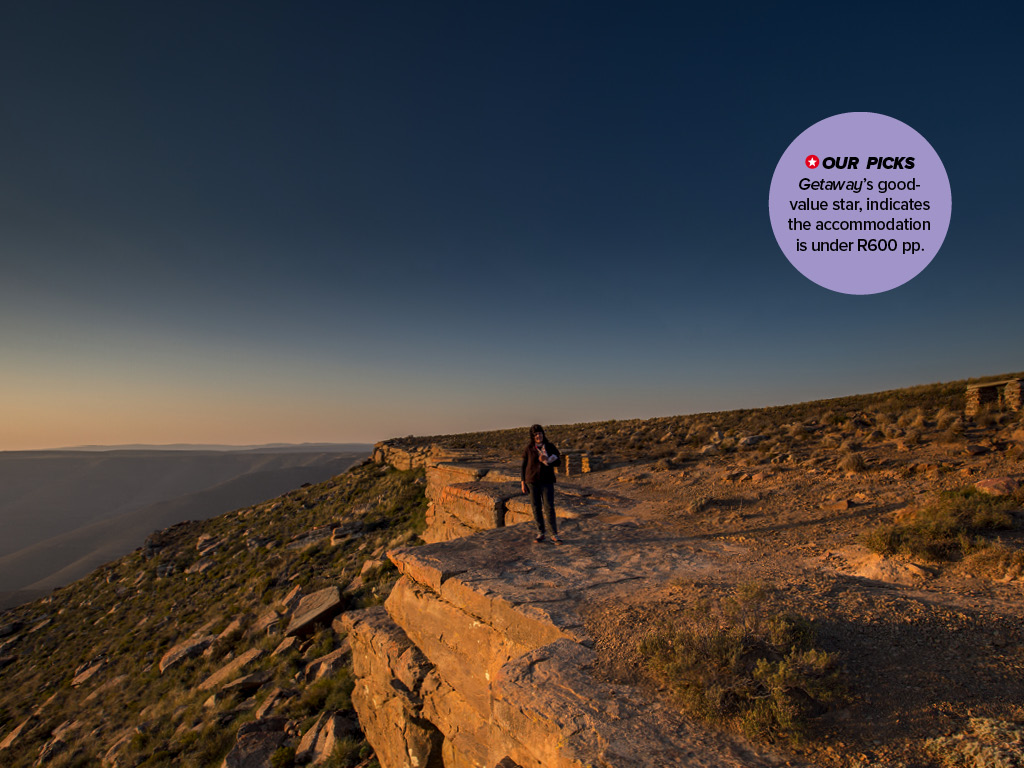
Visitors to Sutherland have increased over the years, from 2500 in 2006 to 20000 in 2019, so the town’s accommodation base has grown substantially. To experience the full spectrum of the area, split your time between a town and a farmstay.
Blesfontein Guest Farm
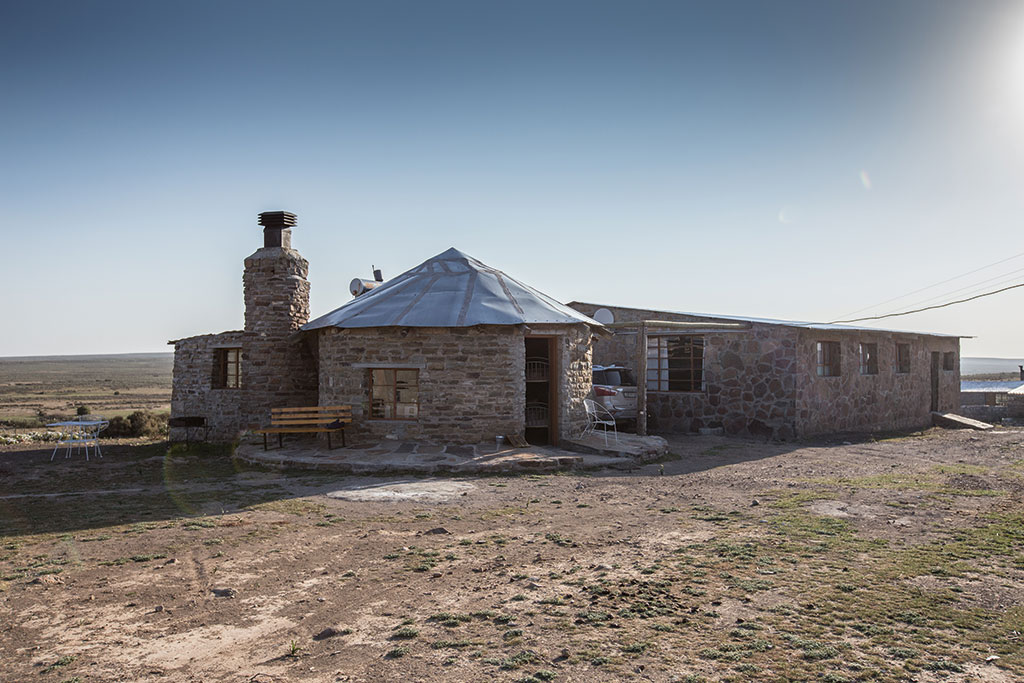
Marina and Nicol van der Merwe are natural hosts with a generosity of spirit as wide as the open space that gives Blesfontein its appeal. The couple have transformed many of the outbuildings once used by livestock to accommodate visitors. Nine units with names such as The Cowshed, The Milkshed and The Hay Stable are all self-catering. Should you want a break from cooking, you can have a sit-down breakfast and dinner at the farmhouse.
At night, Nicol will take you stargazing in his amateur observatory with a 30-centimetre refractor telescope, and at the same time entertain you with his wit.
Blesfontein is a great place for families as Marina cares for a plethora of animals from alpacas to horses and zebras. Don’t leave the farm without experiencing sundowners at the escarpment, a 10-minute drive along an extremely bumpy track on the farm. If you don’t have a 4×4, Nicol rents his bakkie for R200 to get there.
Day trips to the Tankwa National Park about 90 kilometres from the farm are doable, taking you through spectacular passes such as Ouberg and Gannaga.
*Cost
From R380 pp adults and R160 for children under 12. 023-571-2631, blesfontein.co.za
Insider tip
Unit 9 is The Rondawel and it’s the most private. From here, there are uninterrupted views across the farm towards the reservoir, which has a thriving population of koi fish.
Skitterland Guest House
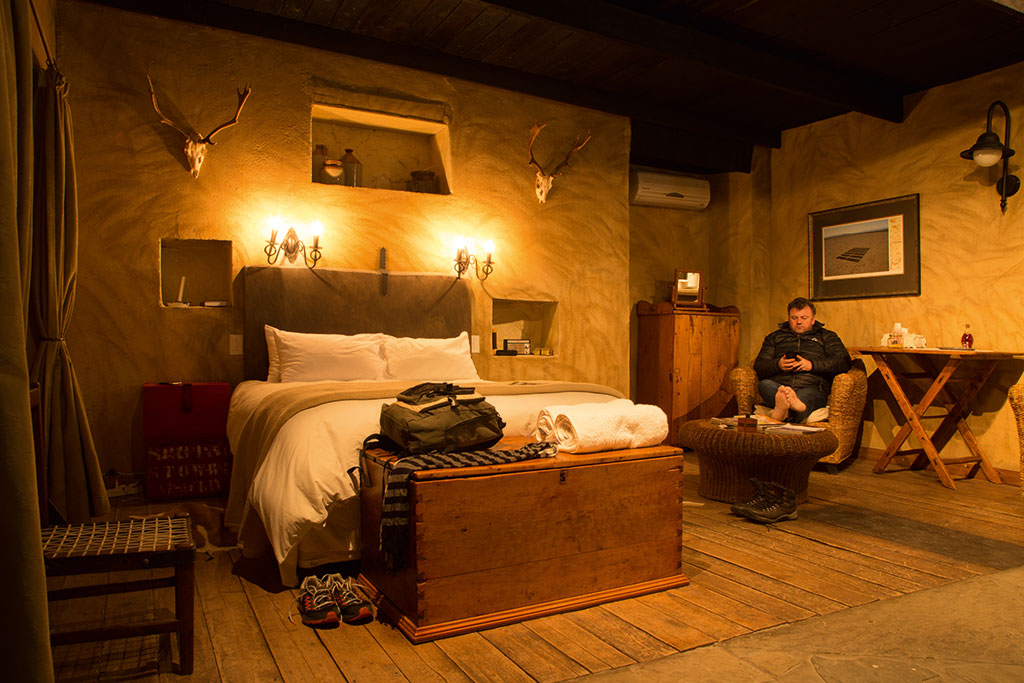
The building dates back to 1860 and was inhabited by the town’s doctors from 1919 to 1926. The large Cedrus deodara tree in the front garden was planted by one of the doctor’s wives, a Mrs Stegmann. It’s the only surviving tree from a consignment of cedars imported from the Swiss Alps. Skitterland has five well-appointed suites, four of which are in the main house. Sagittarius is for a family, sleeping four, and Taurus, the honeymoon suite, is so romantic you’ll want to stay an extra night. The dining room is small, but warm and friendly, and had fresh roses on the tables when we stayed. The cooked breakfast was excellent.
*Cost
From R480 pp sharing B&B. 023-571-1115, skitterland.co.za
Insider tip
Book Hibernia if you want total privacy – it’s separate from the main house. The bathroom is large enough to practise all your yoga moves.
Self-catering
*Die Heks se Huis
These renovated cottages (pictured) are a stone’s throw from the planetarium. They are all spotless and beautifully decorated (R350 pp)
*Perlman House
One of the oldest dwellings in town, built about 150 years ago, this was the home of Barnett Perlman, a prominent Jewish merchant, and his Polish wife. Some of the rooms still have the original wooden floors and window frames (from R430 pp).
*Aandstêr
This stone cottage has recently been renovated and has an inside braai area (R350 pp).
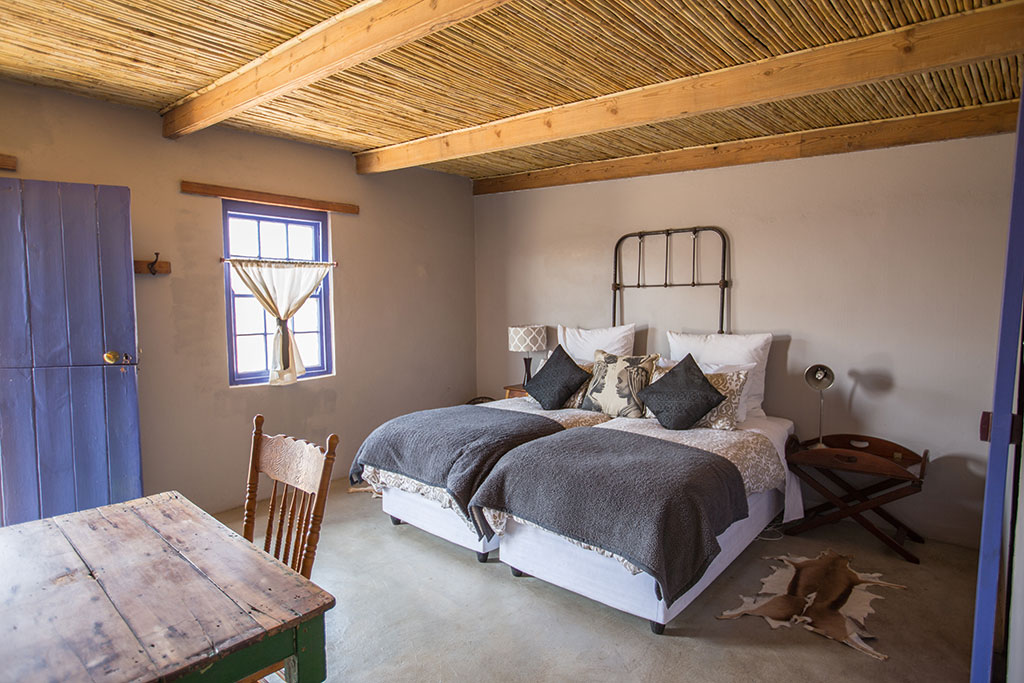
Camping
*Skurweberg Guest Farm
The riverside campsite has ablution facilities which include hot showers and flushing toilets. There are also excellent hiking trails in the area. (R130 pp).
*Sterland Caravan Park
The park includes a kids’ splash pool and Rita’s Tea Garden, which serves a variety of sweet treats. The seven stands come with electricity. (R130 pp).
Farm stays
*Rhenoster Valley Guest Farm
This homestead is on the highest and coldest farm in Sutherland. There’s no light pollution – you’ll be using oil lamps and candles. Nine British soldiers from the Anglo-Boer War are buried here, and there’s a 200-year old pear tree (R350 pp).
*Middelfontein Farm
A kilometre north of town, guests stay at the farmhouse or the two cottages. There are beautiful walks on the farm (from R590 pp).
Guest Houses
*Blue Moon
In a tranquil setting away from the main road, this guest house on Primrose Street has five well-appointed rooms and a restaurant (R450 pp).
*Jack of The Karoo
This Victorian stone house in the heart of Sutherland is ideal for self-catering. It has a full kitchen and indoor braai. Sleeps six. (R350 pp).

